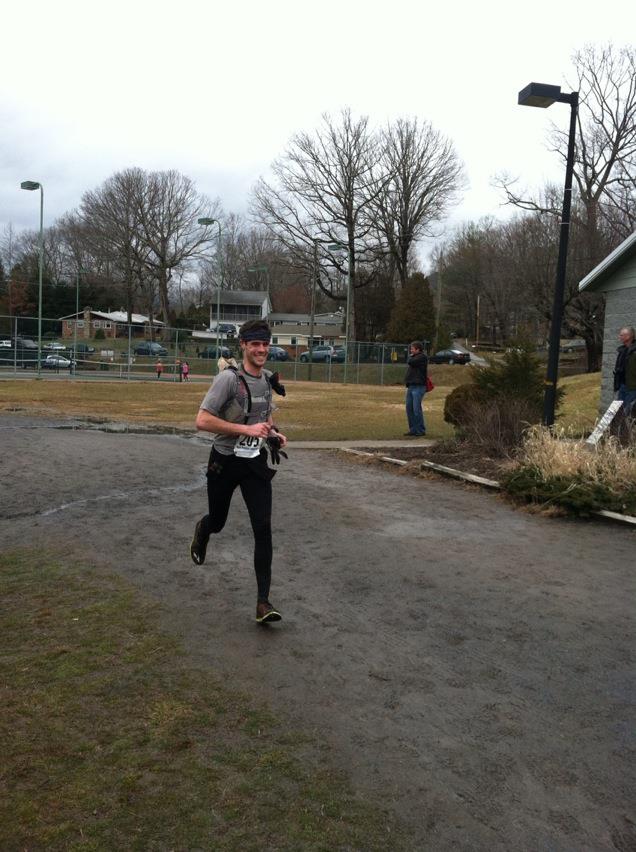 Running has become a great teacher in my life, but it didn’t start that way. The value of work and contribution was instilled in me at an early age. I had chores, mowed the lawn, washed cars, vacuumed, all sorts of around-the-house work. My first cash job was assembling trophies at the shop of my friend’s dad. My brother and I would go in on the weekends, or after school, and work for a few hours, be handed a $10 bill, and happily ride our bikes home.
Running has become a great teacher in my life, but it didn’t start that way. The value of work and contribution was instilled in me at an early age. I had chores, mowed the lawn, washed cars, vacuumed, all sorts of around-the-house work. My first cash job was assembling trophies at the shop of my friend’s dad. My brother and I would go in on the weekends, or after school, and work for a few hours, be handed a $10 bill, and happily ride our bikes home.
Working at summer camp helped too. Being a counselor is an all-day job, though not all of it feels like work! But I still had to learn to be present and engaging even when I didn’t feel like it.
Sports also helped round out my grind ethic. Football two-a-days was another valuable lesson in putting aside temporary fatigue for the good of the team and long-term goals.
But perhaps my greatest teacher in learning how to grind has been running. I was a sprinter in high school, and before moving to North Carolina, had never run more than a 15k at once, and honestly that had only been once!
My transformation in to an endurance athlete isn’t the point. The point is training for and running these long distances has engaged a different part of myself, and has coincided with writing more. After never running more than a 15k (9.3 miles), I have now run 5 races of a marathon distance or longer, stretching up to 40 miles. When training for a race of that length, you regularly need to run over 10 miles. So yes, it’s been quite a change.
When you’re moving for that long, a lot happens. You’re constantly making little binary decisions about what to do.
“Do I eat? Stop to stretch? Go to the bathroom?”
Those are easy compared to the non-stop mind games doing their own laps through your brain.
“What are you doing?” “This is such a waste of your time” “Why don’t you just flag down that truck there” and my favorite, “Shouldn’t you be writing?”
Which is just perfect for the Resistance, because when I’m writing I hear the voice saying,
“Shouldn’t you be running?”
Remember those binary decisions? I’ve found even in writing I am tempted to make similar little decisions that can distract me from the task.
“Should I make more coffee now?” “Check email?” “Go for a run?” “Cook?”
In any type of endurance event, you’re constantly giving yourself positive self-talk, reminding your weary body why you can complete this task. That the payoff at the end is worth the temporary pain. Running in the woods for hours on end taught me this in a way nothing else has. It taught me that I can stay in something for a long time, longer than I thought was possible.
I never thought I could run 40 miles in one day. I still don’t like driving 40 miles! But grinding towards that goal has opened my mind to other “impossibilities” I once thought were unattainable.
- Starting a blog and waking up early or staying up late to write? In progress
- Completing an Ironman? One day
- Starting a business? Possible
- Speaking to 400 people? Last month
- Reading the Steve Jobs book? Working on it 🙂
There is a mental switch to turning physical lessons (running) to cognitive work (writing), but the non-cognitive traits and lessons learned make the process possible. Traits like resilience, endurance, positive thinking, patience, and simplicity are applicable across different kinds of work and relationships.
And I learned them in the woods.
Question: Have you found that you’ve learned lessons in one aspect of life that you realized were applicable to another part? Please share in the comments.

Egads, man. Of course!
For me, it’s the act of repairing-a-broken-thing. What thing? Anything. Toasters. Bicycles. Eyeglass frames. Jewelry. Name it. Things I’m familiar with, things I’m not… It can be satisfying or crazy-making, simple or complex – but it’s gotta be _mechanical_. Something you can see all the angles of, not like… SOFTWARE issues. That’s for another day.
The first thing I’ll do if I hit a wall when wrestling with a tough mind problem (life, relationships, concepts) is fix a broken watch or rewire a lamp. It’s forgiving! It’s like training for the bigger, and usually scarier, event.
Nice! I agree that working on related problems often help see the main issue in a different light.
I learned some costly but valuable lessons playing poker semi-professionally all the way through college.
One thing poker does well is teach you about expected value. Making the right decision is more important than winning a hand, and with luck playing a part, it may take some time for the two to correlate.
In the short term, you can play perfectly and lose, or play awful and win. I think this is very counter-intuitive for most people. Our instinct tells us that winners must be doing something right, but that’s not always the case.
Alex, I see that more clearly now as well. Success is not always correlated with doing things well, nor is failure a result of doing things wrong. Sometimes each just happens. It helps my mindset not to look at results as black and white feedback on my performance. Thanks for sharing!